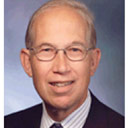Samuel Estreicher

July 07, 2009 | New York Law Journal
ArbitrationSamuel Estreicher, the Dwight D. Opperman Professor at New York University School of Law and counsel to Jones Day, and Steven C. Bennett, a partner at Jones Day, discuss Arthur Andersen LLP v. Carlisle, where the U.S. Supreme Court ruled that nonparties to an arbitration agreement may obtain a stay pending arbitration under �3 of the Federal Arbitration Act if state law recognizes the right of third-party enforcement.
By Samuel Estreicher and Steven C. Bennett
8 minute read

August 12, 2009 | New York Law Journal
ArbitrationSamuel Estreicher, the Dwight D. Opperman Professor at New York University School of Law and counsel to Jones Day, and Steven C. Bennett, a partner at the firm, write that six years ago the U.S. Supreme Court seemingly opened the door to a significantly new phenomenon in arbitration - classwide arbitration - by holding that under the Federal Arbitration Act, the arbitrator, not the court, decides in the first instance whether the arbitration agreement authorizes or forbids classwide arbitration. Now, they say, the Court has granted review in a case from the U.S. Court of Appeals for the Second Circuit to decide whether the FAA itself prohibits imposition of class arbitration where an arbitration agreement is otherwise silent on the question.
By Samuel Estreicher and Steven C. Bennett
8 minute read
May 01, 2003 | New York Law Journal
ArbitrationBy Samuel Estreicher And Rene M. Johnson
5 minute read

August 30, 2011 | New York Law Journal
Practical Responses to the New French Arbitration LawIn their Arbitration column, Samuel Estreicher and Steven C. Bennett of Jones Day review the new law, which lessens the formalism surrounding arbitration, expressly provides for the confidentiality of domestic arbitrations but reverses the presumption of confidentiality in international cases, clarifies the role of French courts in supervising arbitration, and promotes the recognition of arbitration awards.
By Samuel Estreicher and Steven C. Bennett
12 minute read

August 08, 2007 | New York Law Journal
ArbitrationSamuel Estreicher, Dwight D. Opperman Professor at New York University School of Law and counsel to Jones Day, and Steven C. Bennett, a partner at the firm, write that a recent New York case appears to have stretched the bounds of the appropriate application of the public policy limit on arbitration of certain disputes in a manner that potentially conflicts with the FAA.
By Samuel Estreicher and Steven C. Bennett
15 minute read

February 23, 2011 | New York Law Journal
NLRB Allows Pre-Recognition Framework AgreementsAndrew M. Kramer, a partner at Jones Day, and Samuel Estreicher, the Dwight D. Opperman Professor at New York University School of Law and counsel to Jones Day, discuss a recent NLRB decision that clears legal obstacles to the ability of unions and employers to agree to a framework for recognition and future bargaining—even before the union acquires majority support among the employees and is recognized as their exclusive bargaining agent.
By Andrew M. Kramer and Samuel Estreicher
11 minute read
July 20, 2006 | Law.com
First Amendment Guards Lifted for Public Workers' Job-Related SpeechThe Supreme Court has ruled that public employees are not protected by the First Amendment for "expressions made pursuant to office responsibilities." In some circumstances, public workers may be able to structure their remarks so as to create a clear line between their expression and job-related duties. In others, state whistleblower statutes might offer protection. However, the Court's ruling in Garcetti v. Ceballos marks an important limitation on the scope of freedom of speech in the workplace.
By Samuel Estreicher
16 minute read
January 26, 2007 | New York Law Journal
RICO Usage Against Employers for Immigration MisdeedsSamuel Estreicher, Dwight D. Opperman Professor of Law at New York University School of Law and of counsel to Jones Day, and Joseph J. Bernasky, an associate at the firm, review a recent Eleventh Circuit decision that illustrates some judicial receptivity to a potentially very expansive interpretation of RICO's scope and may open the door to a wide variety of RICO suits against employers, labor unions, and other institutions.
By Samuel Estreicher and Joseph J. Bernasky
18 minute read

August 04, 2005 | New York Law Journal
ArbitrationSamuel Estreicher, Dwight D. Opperman Professor Law at New York University School of Law and of counsel to Jones Day, and Steven C. Bennett, a partner at the firm, analyze a recent case where the U.S. Court of Appeals for the First Circuit ruled on the appropriateness of enforcing agreements to arbitrate employment disputes when notice of such an agreement is sent to employees by e-mail.
By Samuel Estreicher and Steven C. Bennett
14 minute read
October 02, 2003 | Law.com
Supreme Court Vacates Classwide AwardsIn Green Tree Fin. Corp. v. Bazzle, the U.S. Supreme Court overturned two multimillion-dollar classwide awards, holding that where a mandatory arbitration agreement is silent as to class claims, it is for the arbitrator, not a court, to decide whether the agreement permits arbitration of class claims. In light of Bazzle, parties drafting mandatory agreements should carefully consider whether to include an express prohibition on arbitration of class claims.
By Rene M. Johnson and Samuel Estreicher
11 minute read
Trending Stories
- 1People in the News—Nov. 27, 2024—Flaster Greenberg, Tucker Arensberg
- 2Cybersecurity Special Section 2024
- 3How I Made Office Managing Partner: 'Being Understanding, Fair and Impartial Are Key Requirements,' Says Gregory Noonan of Hogan Lovells
- 4Don’t Settle for the Minimum: Finding Constitutional Claims Closer to Home
- 5Federal Judge Weighs In on School's Discipline for 'Explicitly Copying AI-Generated Text' on Project
More from ALM
- Legal Speak at General Counsel Conference East 2024: Match Group's Katie Dugan & Herrick's Carol Goodman 1 minute read
- Legal Speak at General Counsel Conference East 2024: Eric Wall, Executive VP, Syllo 1 minute read
- Legal Speak at General Counsel Conference East 2024: Virginia Griffith, Director of Business Development at OutsideGC 1 minute read



